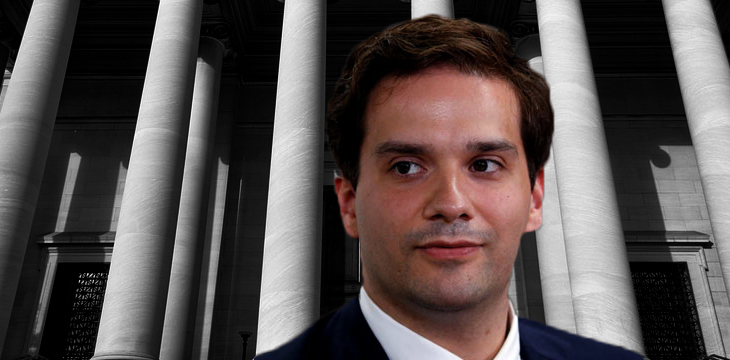|
Getting your Trinity Audio player ready...
|
A U.S. court has ruled that the former CEO of the defunct Mt. Gox cryptocurrency exchange should face trial over his role in the collapse of the business, in the latest twist on the way to justice for those affected, Reuters reported.
French citizen Mark Karpeles served as CEO at the exchange in 2014, up to the point at which Mt. Gox collapsed, sending shockwaves throughout the cryptocurrency world at the time.
At the time, Mt. Gox was the world’s largest exchange by volume, considered an early market leader for those speculating on Bitcoin. The exchange ran into problems following a high profile hack, which left Mt. Gox fatally wounded.
A number of Mt. Gox users lost access to their funds during the collapse, with many still waiting for restitution several years later. The ruling, by a federal judge in Philadelphia, will now see further action brought against Karpeles personally.
Karpeles has been cleared of wrongdoing in connection with the collapse of Mt. Gox, despite coming in for extensive criticism for what some consider to be a failure to prevent the fatal attack.
In response, Karpeles argued that the court in Philadelphia lacked the jurisdiction to rule on the exchange, which itself was based in Japan.
However, Karpeles’ argument was dismissed by District Judge Robert Kelly, who said the court had jurisdiction because Karpeles oversaw the website, which openly solicited for business worldwide, including in Philadelphia.
As a result, those affected by the collapse will have another day in court, and another chance to pour over the details of the run-up to and aftermath of what remains one of the most significant cryptocurrency hacks in history.
The lawsuit was first filed back in 2018, and initially named Mizuho Bank, alongside Karpeles. With the court finding it lacked jurisdiction over the actions of the bank, Karpeles was subject to the jurisdiction of the court because of his “sole controlling influence” over Mt. Gox at the time.
Karpeles has managed to evade similar legal action in the past, having been cleared of criminal charges by a court in Japan, as well as avoiding a class action suit brought in Canada.
It remains to be seen whether the latest ruling will deliver justice for those still waiting on their money back, some five years after the exchange collapsed.

 03-04-2026
03-04-2026 




